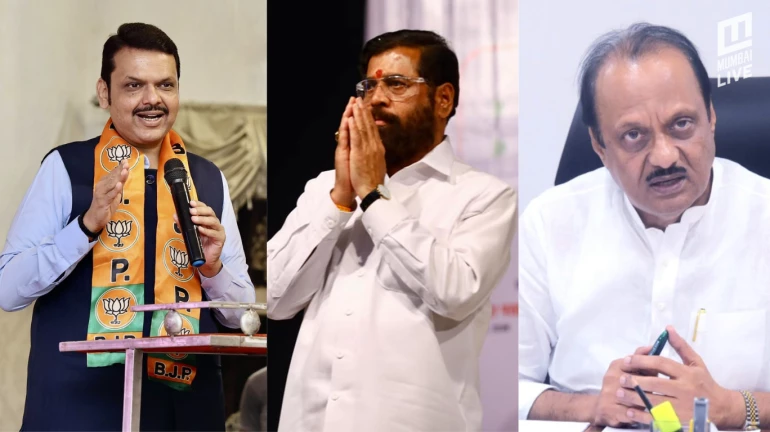
The Mahayuti government, led by Chief Minister Devendra Fadnavis, announced the long-awaited allocation of cabinet portfolios on December 15. This decision came six days after the first expansion of the state cabinet and on the final day of the winter session of the state legislature, following approval from Governor CP Radhakrishnan. The Bharatiya Janata Party (BJP), Shiv Sena, and Nationalist Congress Party (NCP) divided key responsibilities among themselves, showcasing shifting political dynamics within the coalition.
The BJP retained the lion’s share of portfolios, holding 20 ministerial positions, while Shiv Sena and the NCP secured 12 and 10 positions, respectively. Chief Minister Fadnavis retained two of the most powerful portfolios, home and energy. Among his deputies, Eknath Shinde took charge of urban development, housing, and public works, while Ajit Pawar retained finance and gained the excise department. The BJP held onto critical departments such as home, energy, revenue, public works, water resources, rural development, and tribal development. However, Shiv Sena managed to negotiate key portfolios like urban development, housing, industries, public health, social justice, agriculture, and MSRDC. The NCP retained its hold on finance and excise while also securing cooperation and women and child welfare, which oversees the Ladki Bahin Yojna program.
The portfolio allocation highlighted changes in BJP’s internal power structure. Maharashtra BJP chief Chandrashekhar Bawankule, a close ally of Fadnavis, was assigned the critical revenue department. However, senior leaders like Radhakrishna Vikhe-Patil and Mumbai BJP chief Ashish Shelar were handed less significant roles. Vikhe-Patil, previously seen as a chief ministerial aspirant, was given a shared water resources portfolio alongside Girish Mahajan, while Shelar was assigned cultural affairs and information technology. Meanwhile, Pankaja Munde, a prominent BJP leader, was given environment and climate change as well as animal husbandry.
Eknath Shinde’s Shiv Sena secured high-profile portfolios, but reports of dissatisfaction surfaced among senior leaders. While Shinde and his close allies retained major departments, some leaders expressed disappointment with their allocations. Gulabrao Patil was assigned water supply, Sanjay Rathod soil and water conservation, and Shambhujraj Desai tourism and mining, leaving them reportedly dissatisfied. The NCP, under Ajit Pawar’s leadership, retained finance and excise while also gaining women and child welfare, enhancing its influence within the coalition.
Political analysts observed that Fadnavis used the allocations to consolidate his influence by prioritizing loyalists and first-time ministers, potentially building his own team within the BJP. State BJP Vice President Madhav Bhandari described the distribution as balanced, emphasizing continuity from the previous government. Meanwhile, BJP spokesperson Krishna Hegde highlighted Shiv Sena’s significant gains, including urban development and school education, which directly impact public welfare.
Despite attempts to balance power among the coalition partners, internal dissatisfaction persisted, particularly within Shiv Sena. As the cabinet takes shape, all eyes remain on how these dynamics will influence the Mahayuti government’s governance in the months ahead.





